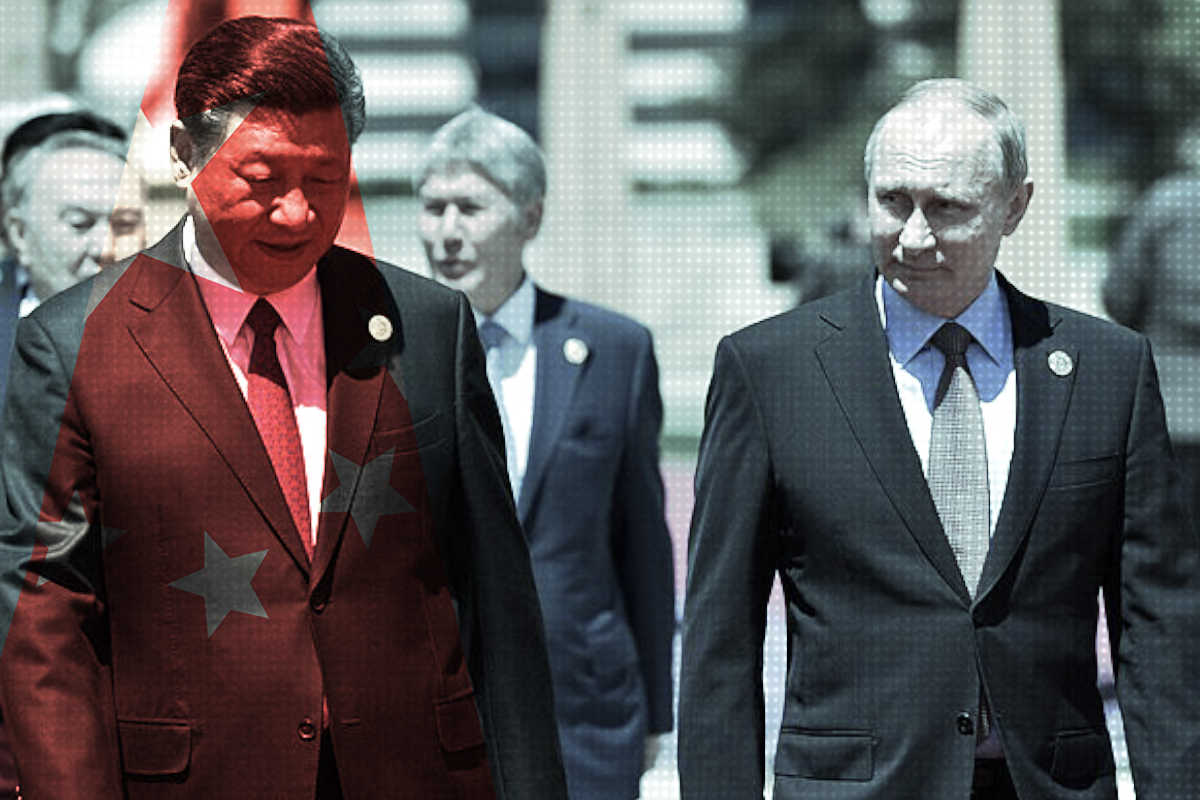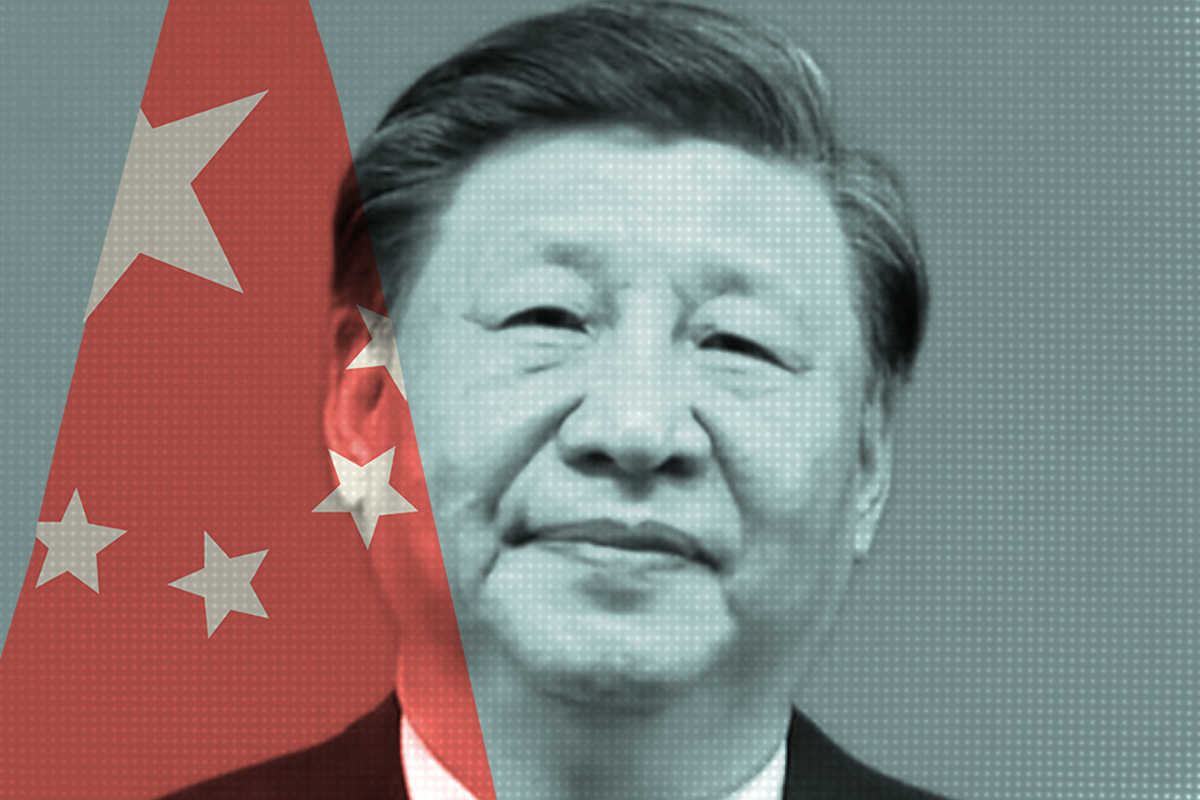CMP has confirmed that daily newspapers across China — including Party papers (党报) and commercial spin-offs (子报) — were instructed by propaganda authorities to publish today’s front-page People’s Daily editorial reiterating that China is “a nation of rule of law and that the dignity and authority of the law cannot be trampled.”
Newspapers were told to give the editorial prominent positioning, and to clearly mark it as coming from the People’s Daily.
The editorial, much of which parrots the April 11 People’s Daily piece that accompanied the announcement of Bo Xilai’s removal from the Central Committee, is the latest salvo in an ongoing campaign by China’s top leadership to firm up support for Bo’s ouster and bridge divisions within the Party (and the general population) ahead of the 18th Congress later this year.
“Regardless of who is implicated, if there is a breach of the law it will be handled according to the law, without indulgence.” Recently, the CCP Central Committee’s investigation and prosecution of the serious discipline violations of Comrade Bo Xilai (薄熙来), and the Public Security Bureau’s announcement of the results of its legal re-investigation into the death of Neil Heywood and transfer of the criminal suspects to judicial organs, has received the earnest support of Party members and the masses, and conscientious observation of Party discipline and national laws has become a general consensus throughout the Party and the people of the nation, coalescing into a powerful force for reform, development and stability.
This forced placement of an editorial from the CCP’s flagship newspaper is a highly irregular move, and sends a clear message that the leadership is tightening propaganda controls across media — from social media sites and news websites to traditional media.
The move also reflects the Party’s determination to convey its messages directly through commercially operating Chinese media, a tactic that formally became a part of media policy four years ago.
Back in June 2008, in his first full-fledged speech on media policy, Chinese President Hu Jintao (胡锦涛) spoke of the need for the Party to shift its information tactics. Under the “new circumstances” of a rapidly changing information landscape, it was no longer sufficient to simply “control” information — snuffing out the sparks of public scandal before they blazed into full-fledged crisis. The Party now had to take a more active posture, shaping stories and agendas through the very media that were now, after more than a decade of change (viz., media commercialization and new technologies), posing a challenge to its project of “guiding public opinion.”
This shift meant the Party had to complement “control”, or guanli (管理), with “use”, or liyong (利用). The policy, in fact, was presaged in Hu’s January 2007 campaign to “cleanse” the internet, in which he talked about the need to combine “control” and “use”.
This week, as top leaders push the message of unity, and of loyalty to the central Party leadership — all baked in a moralistic meringue about the Party’s commitment to clean governance and rule of law — they have been actively utilizing media of all stripes.
Today’s People’s Daily is just the latest example. But the active “use” of the media could certainly also be glimpsed in the prominent play given on April 11 in newspapers and websites to the three official Xinhua News Agency releases concerning 1) Bo Xilai’s removal from the Central Committee, 2) his wife’s detention as a chief suspect in the alleged murder of British national Neil Heywood and 3) the People’s Daily editorial on “Strongly Supporting the Correct Decisions of the Party Central Committee.”
A number of examples follow of newspapers today and how they have played the People’s Daily editorial. The chief difference seems to be that while some papers (as Southern Metropolis Daily) have included prominent mention of People’s Daily in bold headlines, others have placed the attribution in a smaller subhead (as The Beijing News).
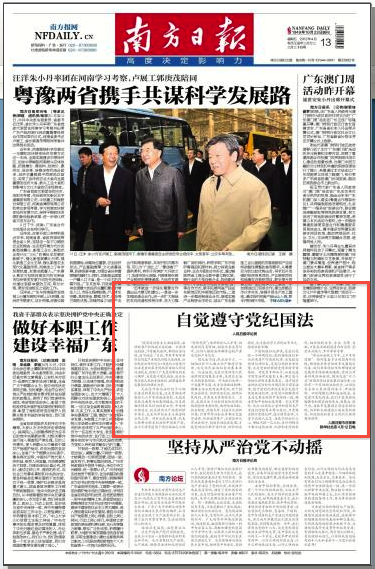
[ABOVE: Today’s front page at Nanfang Daily, the official newspaper of the top Party leadership in Guangdong province.]
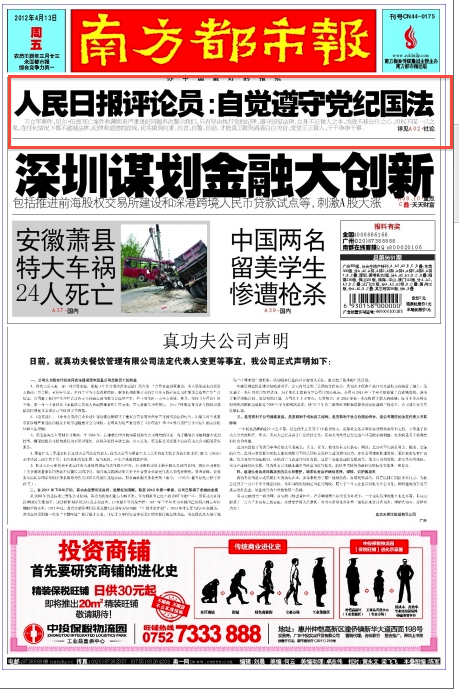
[ABOVE: Today’s front page at Southern Metropolis Daily, a commercial spin-off of Nanfang Daily.]
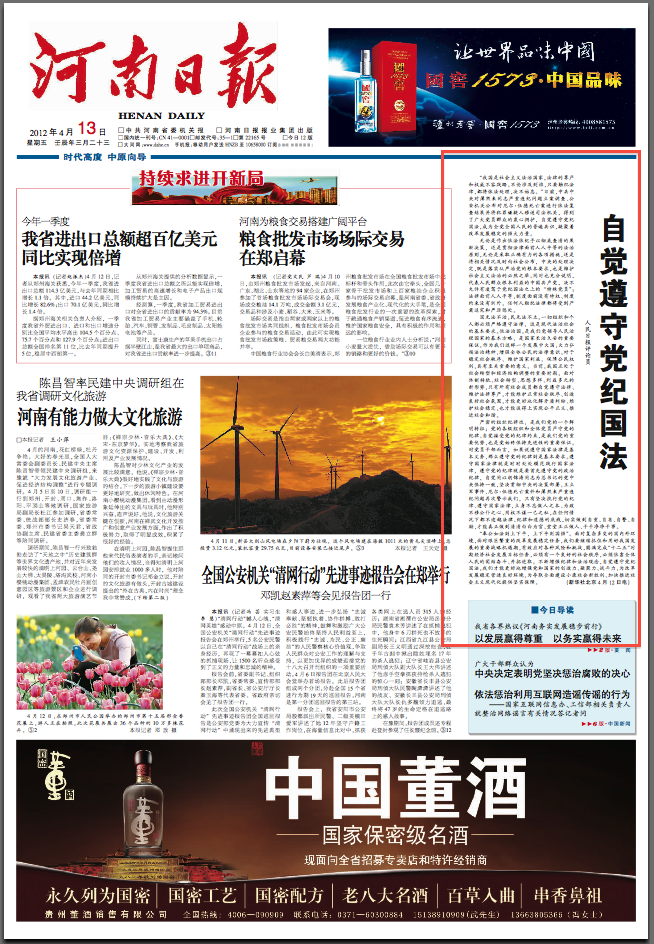
[ABOVE: Today’s front page at Henan Daily, the official newspaper of the top Party leadership in Henan province.]
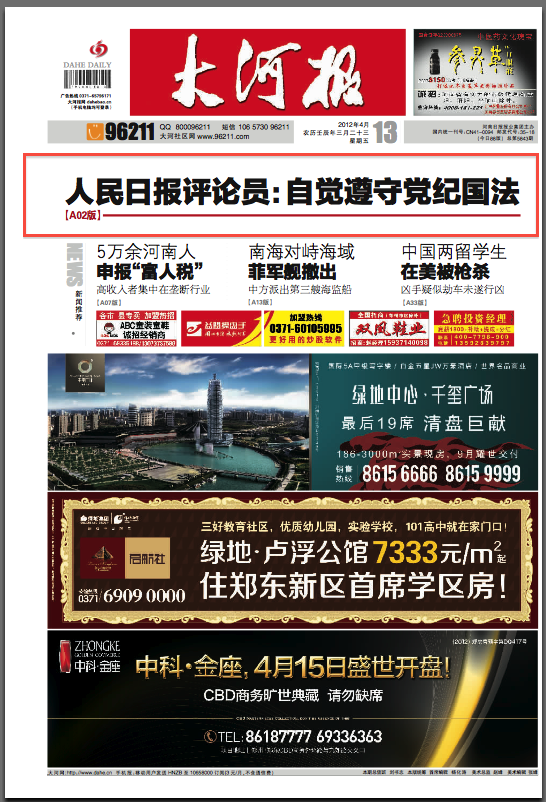
[ABOVE: Today’s front page at Dahe Daily, a commercial spin-off of Henan Daily.]
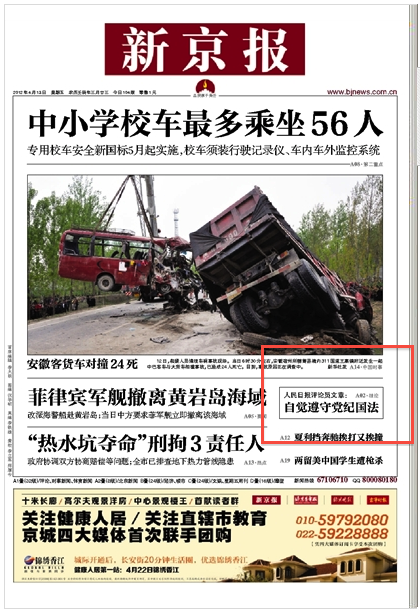
[ABOVE: Today’s front page at The Beijing News.]



















